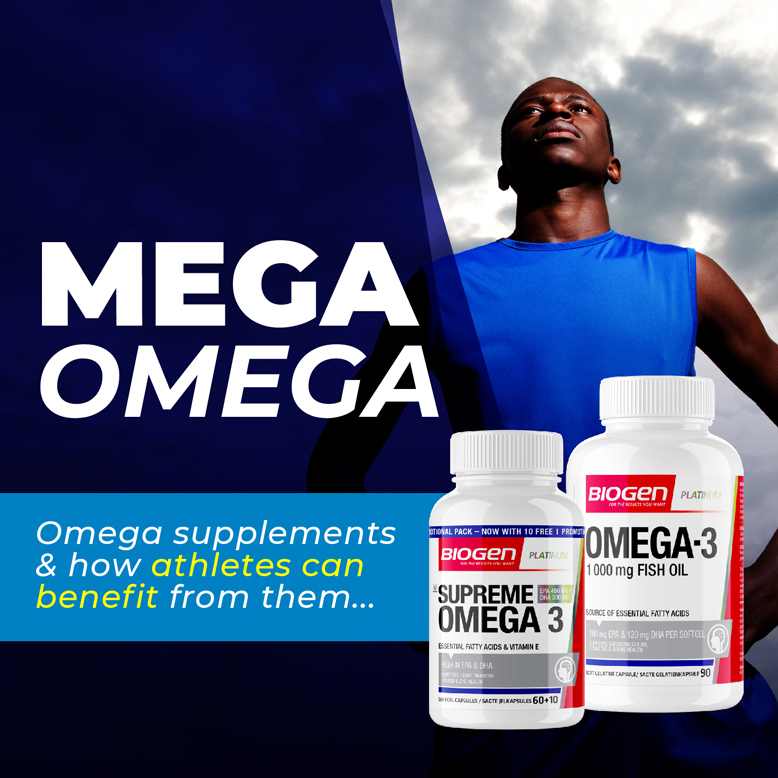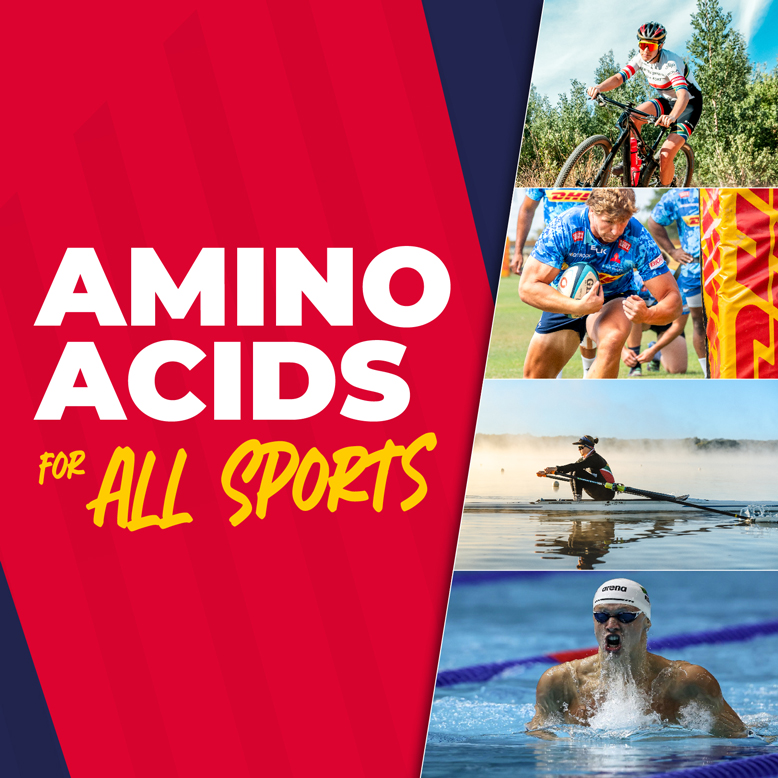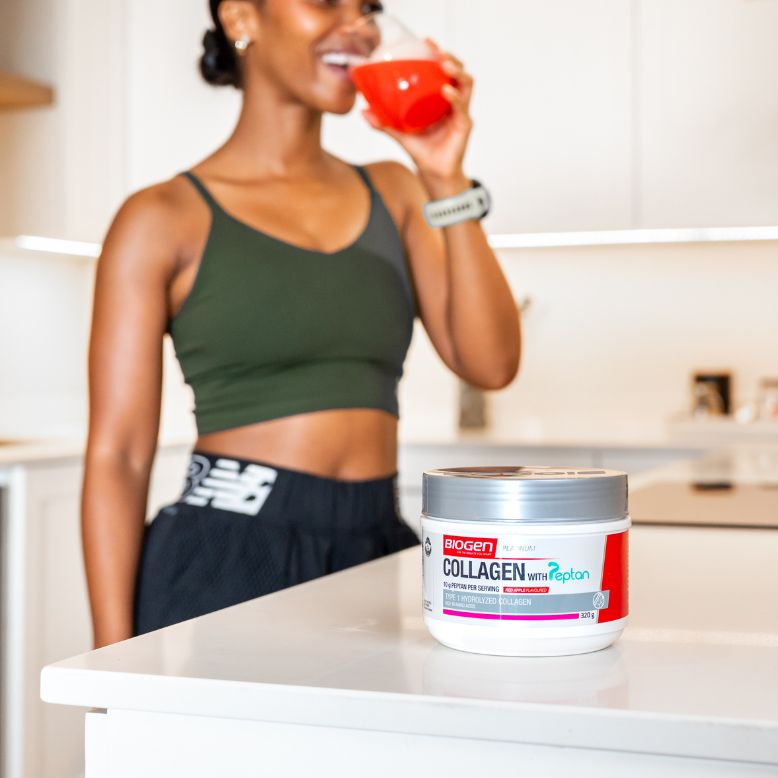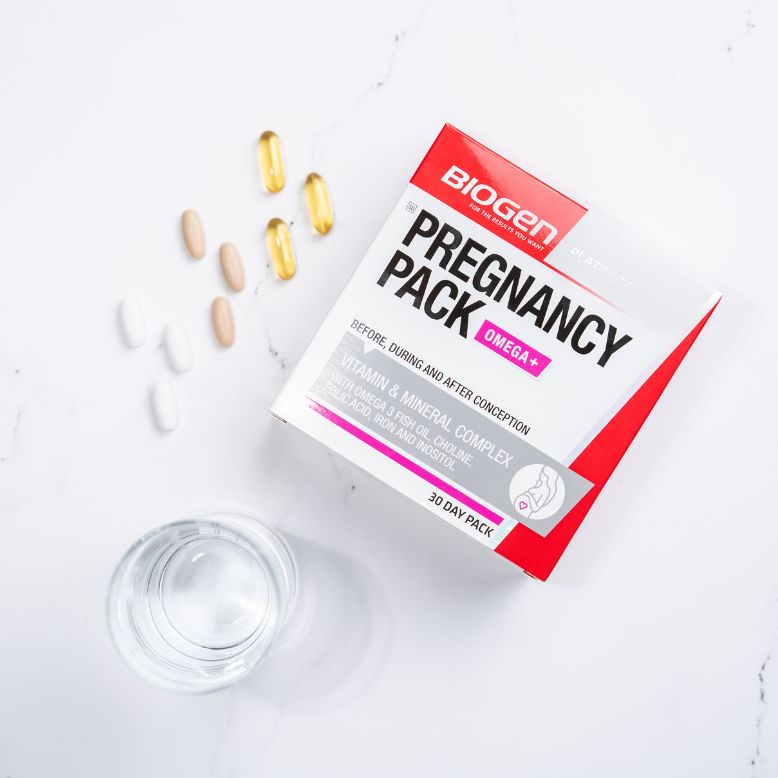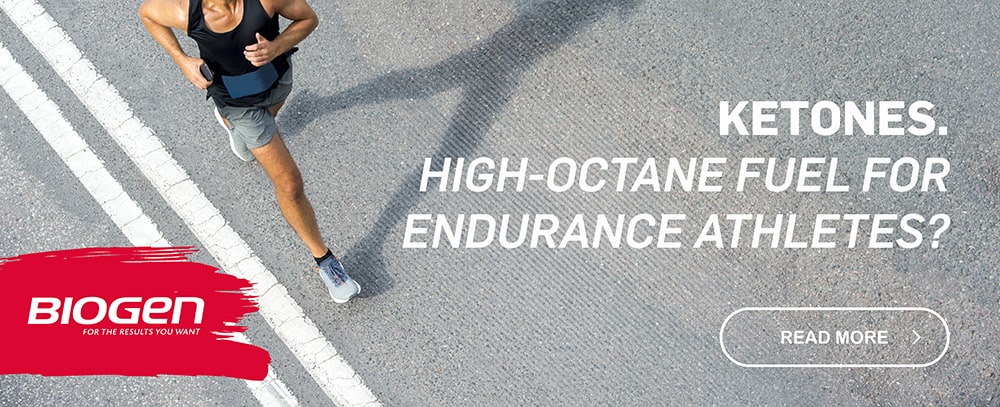
Endurance athletes need sustained energy throughout their training sessions and races to achieve their goals.
Many athletes now realise that fat offers the ideal fuel source. It’s energy dense, offering 9 calories per gram, versus just 4 calories from an equivalent dose of carbs.
And perhaps more importantly, fuelling more of your efforts with fat preserves glycogen – a finite resource due to limited storage capacity in liver and muscle cells – for more intense efforts, like hard climbs or that finish line surge.
Fat-fuelled performance
Fat-derived energy comes in many forms. These include stored body fat and various forms of ingested fat like medium chain triglycerides (MCTs) and saturated and unsaturated dietary sources.
However, fuelling your efforts from fat ultimately boils down to compounds called ketones.
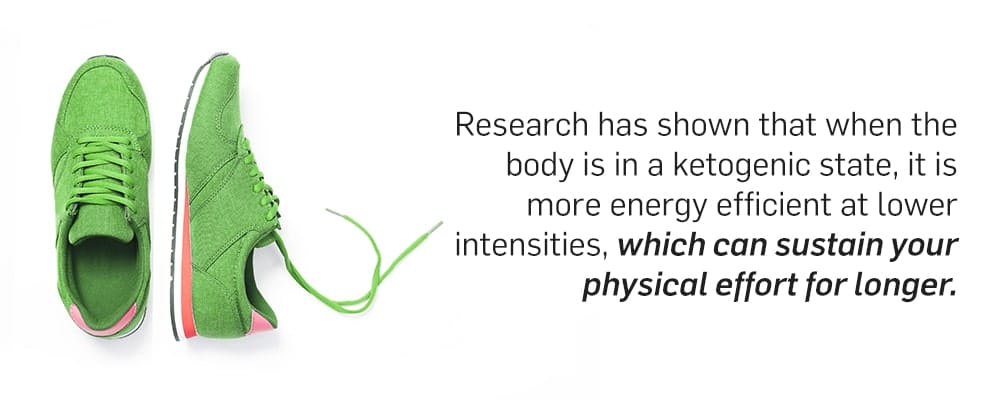
Ketones defined
Your liver produces ketones by metabolising fat. This process happens in response to a lack of circulating glucose.
Restricting carbs for prolonged periods prompts the body to switch to this metabolic state. Eventually, the body will enter a state known as ketosis. That’s when athletes start relying on fat-derived ketones as our primary source of energy.
While in ketosis, the mitochondria – the metabolic energy generators in our cells – use ketones instead of glycogen to fuel muscles, the heart and even the brain.
There are 3 kinds of ketones produced in the liver:
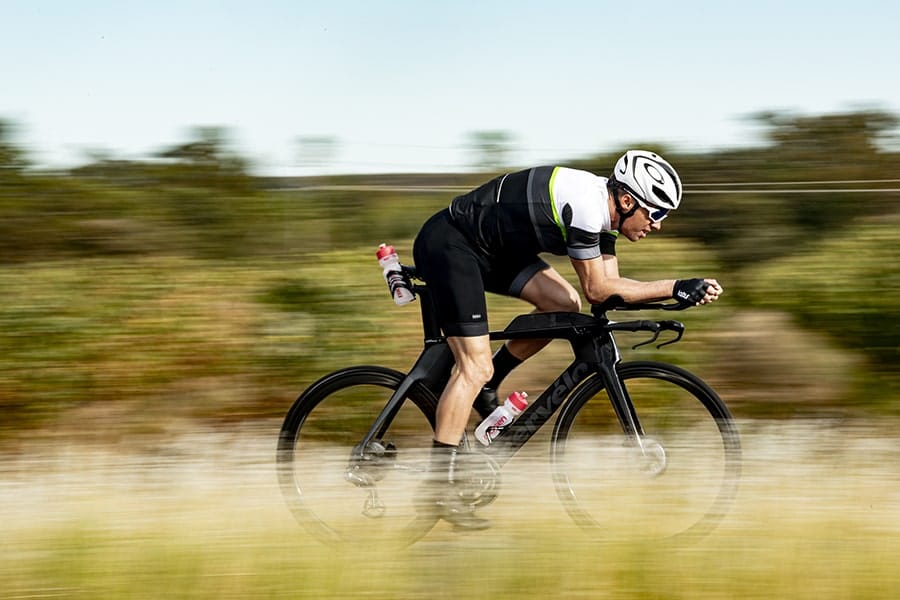
Unlocking ketosis
Athletes need to follow a strict very low-carb diet (VLCD) diet known as a ketogenic diet. This eating plan consists of a very high fat intake, coupled with a moderate protein and low carbohydrate intake.
The basic guidelines require restricting carbohydrates to just 50g/day or less, which is quite extreme – it’s the equivalent of a cup of brown rice, for example.
The low carb intake effectively shifts the body’s primary energy metabolism pathway away from glucose to lipolysis – the processes where the body breaks down fats into free fatty acids. The liver then converts these free fatty acids into ketones in a process known as ketogenesis.
The ketone bodies your body produces then circulate and replace glucose as the body’s primary energy source, fulfilling the various vital functions that glucose had in the body. As ketone bodies in the blood increase over time, they will eventually reach a threshold level, which is when the body technically enters a state of ketosis.

Apply these tips to help you achieve ketosis:
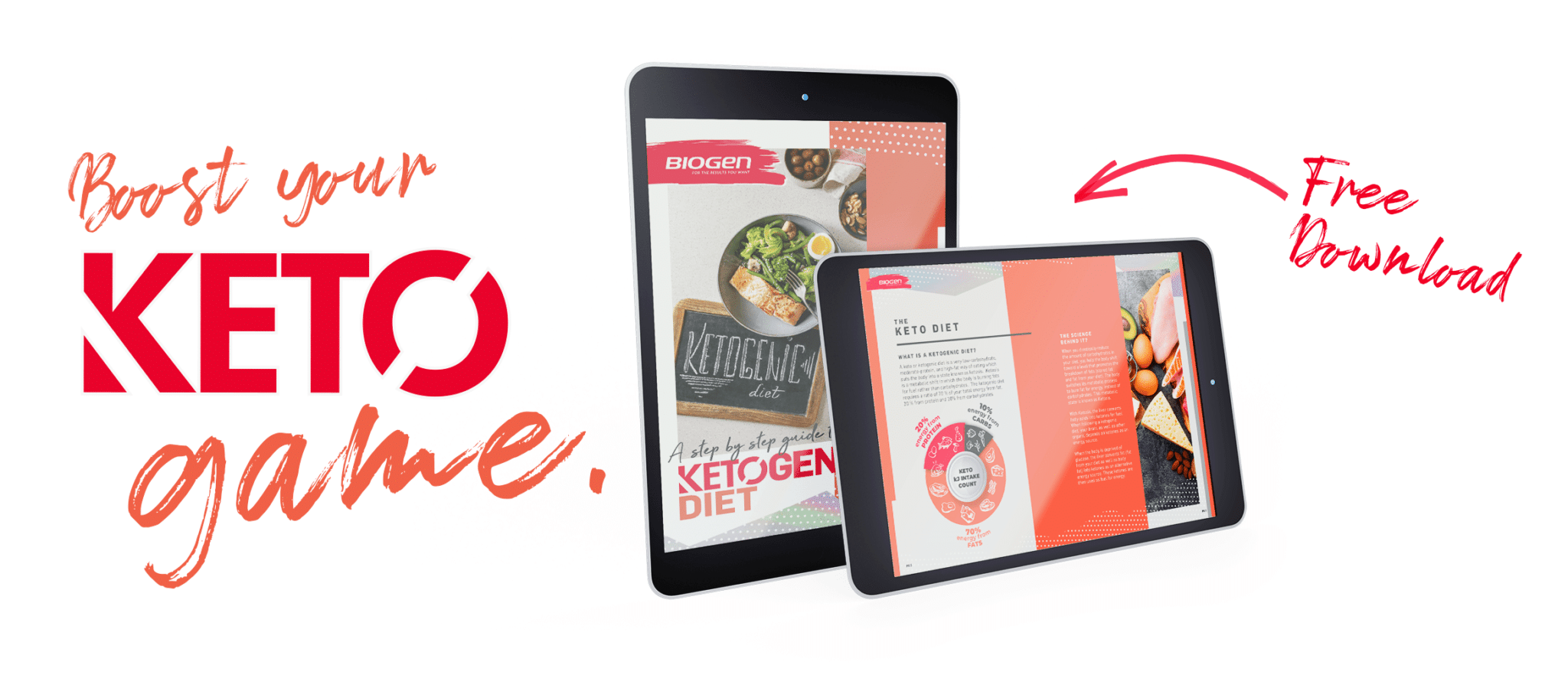
Beware the keto flu
Severely restricting an entire food group (in this case carbs) has its challenges, both physiologically and psychologically. A common physiological issue is known as keto flu.
Athletes can experience this phenomenon when entering the initial induction phase of a ketogenic diet as a consequence of their radically reduced carbohydrate intake.
You can alleviate keto flu symptoms by replenishing electrolytes and minerals in the body in the form of potassium, magnesium and sodium. You may experience a drop in mental and physical performance for a few weeks as your body tries to tap its missing fuel source. Abandon your ketogenic diet if after three weeks your body hasn’t adapted.
What to avoid when making the shift to ketosis:

Supplement with keto salts and esters
Once you’ve adapted, you can amplify ketosis and sustain your fat-derived energy by introducing keto supplements, like those found in Biogen’s new Keto Range.
These supplemental ketones are available as salts and esters. Ketone salts are naturally-derived compounds that combine sodium and/or potassium or calcium with beta-hydroxybutyrate (BHB). These salts function like a ketone in the human body and can be converted into energy, much like acetone and acetoacetate.
Ketone esters are synthetically-made compounds used to raise ketone levels in the body. You can drink or eat them to boost ketone bodies while in ketosis, or derive some of the benefits of ketones without following a ketogenic diet.
These ketone supplements help to make a ketogenic diet more flexible and the entire process more tolerable, where in the past ketosis could only be achieved via a starvation state or a high-fat, low-carb diet, which are extreme methods that can prove unsustainable.
There is also ongoing debate whether it is healthy to remain in a state of ketosis for prolonged periods in the absence of any medical requirement (the diet can be used to treat epilepsy, for example).
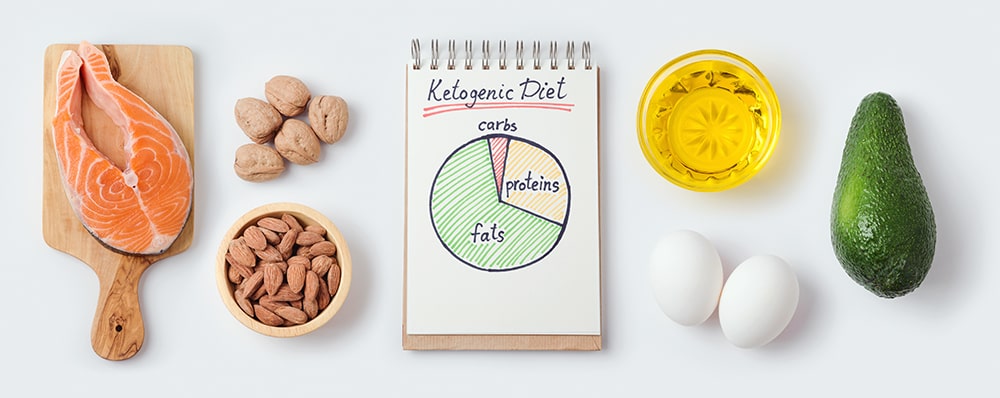
The ketone benefits
Whether you decide to go full keto, or opt for a toned down approach with keto supplements, research has shown that when the body is in a ketogenic state, it is more energy efficient at lower intensities, which can sustain your physical effort for longer.
A large body of research also supports the use of ketones for athletic performance as they provide the following benefits:
Achieving ketosis may also offer a potential solution for athletes who consistently struggle with gastric distress during ultra-distance events as they can consume less food volume for the same or greater calorie intake when relying predominantly on fat.
Fats and carbs best for athletes
However, recent research affirms that relying solely on fat for fuel my actually reduce your performance as the body requires more oxygen to metabolise fat. As such, a combined approach is generally considered best.
This should entail fuelling prolonged, sub threshold steady-state efforts with fats and ketone supplements, and consuming carbohydrates and carb-based energy products at strategic points during a race or training session to support high-intensity efforts.
While athletes who are in a state of nutritional ketosis would likely respond more favourably to supplemental ketones, even those who are simply fat adapted but haven’t reached ketosis could benefit from adding ketones to their supplement approach during training and racing.
A word of caution, though. If you are a type-1 and type-2 diabetic, it is important to consult with your doctor before using exogenous ketones as they can alter blood sugar levels.


